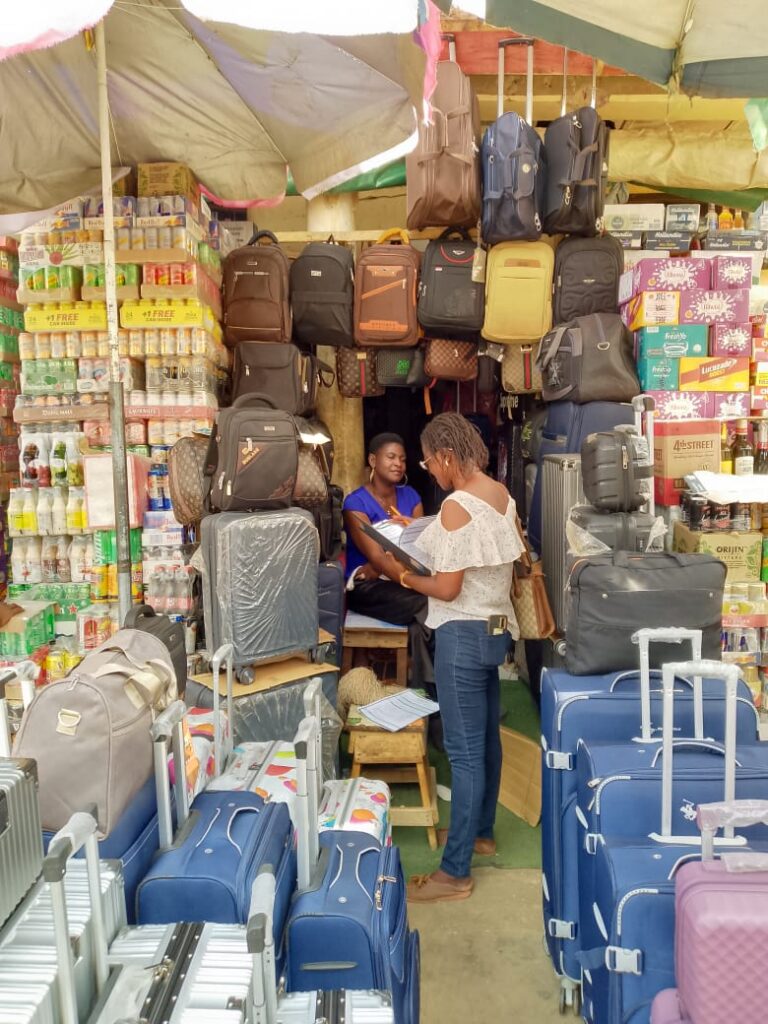
Image: Author (2025)
Introduction: SMEs in a Crisis-Prone Business Environment
My research focuses on how small and medium-sized enterprises (SMEs) in Nigeria manage to keep going when faced with frequent and severe disruptions. These crises take many forms: economic downturns, sudden policy changes, currency fluctuations, shortages of raw materials, power outages, supply chain breakdowns, and sometimes political unrest. For many Nigerian SMEs, these events are not one-off incidents but recurring realities. The combination of weak infrastructure, limited institutional support, and a business environment marked by frequent disruptions means that crisis management is not an occasional task; it is part of everyday business survival.
Research Aim and Core Questions
The study seeks to understand how SMEs in these conditions adapt, survive, and, in some cases, find ways to grow despite the odds. The research focuses on the strategies that businesses develop in response to real challenges, rather than those drawn from theory alone.
Digital Adaptation
A central theme of the study is how SMEs make use of digital tools. Many operate with limited resources, but digital technology can offer affordable ways to maintain operations, reach customers, and manage transactions when traditional methods are disrupted. For example, during the COVID-19 lockdowns, some retail businesses moved their sales to social media platforms, while service providers switched to online consultations. In other cases, mobile payment systems kept cash flowing when physical banks or cash transactions became unreliable. The study considers both the benefits and the limits of digital adoption, for example, when poor internet connectivity or low customer trust in online payments creates new problems.
Informal Networks
Another area of focus is the role of informal networks. In Nigeria, business relationships often extend beyond formal contracts. SMEs may depend on trusted suppliers, loyal customers, family members, and community connections to secure goods, find alternative distribution channels, or access short-term financial support in times of need. These networks can be faster and more flexible than formal systems, but they can also be fragile, relying heavily on trust and mutual goodwill. The research examines how such networks are built, how they operate in a crisis, and the risks they pose for long-term stability.
Value Chain Strategies
The third focus is on value chain strategies, how SMEs organise the process of creating and delivering their products or services, from sourcing materials to reaching the customer. Traditional models, such as Porter’s (1985) value chain, were designed for stable manufacturing environments, but Nigerian SMEs operate in conditions where disruptions are more common. The study explores how businesses adjust these processes when disruptions occur. For instance, a bakery facing a wheat shortage might switch suppliers or change recipes; a fashion retailer might reduce stock variety to focus on high-demand products; a manufacturer might partner with competitors to share transport costs. These are not just operational changes, they are strategic decisions that can determine survival.
Why This Matters
SMEs are a cornerstone of Nigeria’s economy, providing jobs, goods, and services across sectors. Yet they are also highly exposed to disruption. When a business closes due to a crisis, the effects are felt widely: employees lose their livelihoods, customers lose access to products and services, and local economies lose stability. Understanding what helps SMEs stay in business can inform more effective support systems that match real-world conditions.
Practical Relevance for Stakeholders
The findings have direct value for different groups:
- Business owners can identify low-cost, practical measures to improve readiness, such as diversifying suppliers, building emergency funds, training staff in digital tools, and strengthening customer relationships.
- Policymakers can see where SMEs are innovating independently and where targeted support, such as infrastructure investment or access to finance, could make a decisive difference.
- Development agencies and financial institutions can design programmes that align with the actual conditions SMEs face, rather than relying on assumptions that overlook local realities.
Research Approach
The study is grounded in the experiences of business owners. It draws on in-depth interviews with 51 SMEs across sectors including retail, manufacturing, agriculture, services, and creative industries. These interviews reveal not only the problems businesses encounter but also the often-creative solutions they develop. Many of these strategies are undocumented in formal research and therefore remain invisible to policymakers and support organisations. This work aims to capture and analyse those strategies to bridge the gap between on-the-ground practice and institutional understanding.
Rethinking Resilience
The research also challenges the common idea of resilience as “bouncing back” to a pre-crisis state. In Nigeria’s context, resilience is often an ongoing process of adaptation, finding ways to keep operating even when normal conditions do not return. This may mean changing a business model permanently, entering new markets, or embedding flexibility into daily operations. It is a continuous, evolving process shaped by both challenges and opportunities.
Conclusion
My research makes visible the often-overlooked strategies SMEs use to operate under pressure. By analysing digital adoption, informal networks, and value chain adjustments together, it provides a fuller understanding of how resilience works in practice in environments with frequent disruptions. The goal is to turn these insights into practical recommendations that can help businesses survive future crises and build long-term capacity to manage uncertainty.
